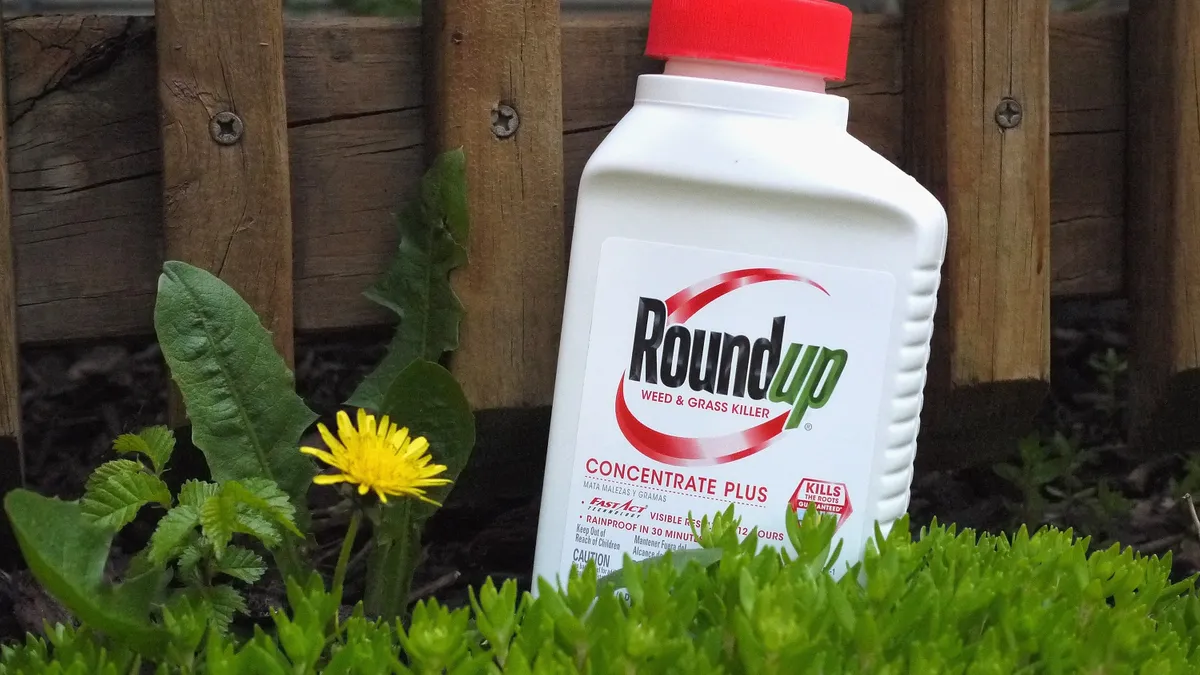Dive Brief:
-
Bayer leadership is considering changes to the company's structure to capitalize on growing markets amid waning glyphosate sales in its crop science division, CEO Bill Anderson said in an earnings call Tuesday.
-
"I'm convinced we can unlock significantly better outcomes if we change the way we operate," Anderson told investors, adding the company is "leaving no stone unturned" as it looks to cut costs and reverse declines in sales.
-
The investor update came two weeks after the company lowered its annual outlook due to further declines in sales of glyphosate-based herbicides. Bayer is refocusing its efforts for the growing regenerative agriculture industry, which it sees as a $110 billion opportunity.
Dive Insight:
In his first earnings call as CEO, Anderson said the company has struggled to perform due to mounting debt, corporate bureaucracy challenges and a litigation overhang linked to its herbicides.
The new CEO is having tough conversations with managers about the company’s overall strategy, underlying challenges and potential steps moving forward for its three core businesses: crop sciences, pharmaceuticals, and consumer health.
“How do we radically accelerate everything at Bayer?" Anderson asked. "[W]e need to convince ourselves that the structure that we adopt is something that is supporting that goal of speed, of innovation, of quality.”
Further details about Bayer’s company structure plans are expected in the coming months. A company spokesperson declined to elaborate beyond the comments made in the earnings call.
Anderson’s comments accompanied a weak second quarter for Bayer, weighed down by lower glyphosate sales and weak prices in the company’s crop sciences division. Excluding glyphosate sales, crop sciences results were flat over last year.
Earnings per share came in at 1.22 euros, or about $1.34, down 37% over the same quarter last year.
Glyphosate, the active ingredient in Bayer’s Roundup weedkiller, has been the subject of thousands of cases over the years for allegedly causing cancer, leading to billions of dollars in settlements and sales restrictions across the world.
To move beyond its dependence on glyphosate products, Bayer is widening its scope to support the growing regenerative agriculture movement.
“It's good for farmer incomes and it's good for the earth,” Anderson said in the call. “And the faster we can translate this into revenue growth, the better for all.”











